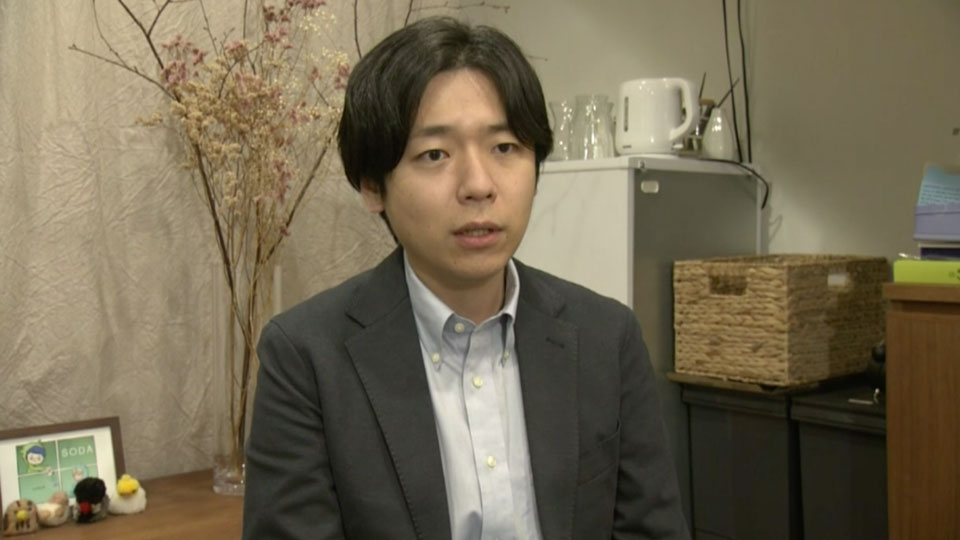In 2020, as the new coronavirus pandemic spread across the world, reports emerged from various countries, including Japan, that the number of people diagnosed with anxiety disorders was increasing at an alarming rate. In recent years, the toll on mental health has become even more severe as conflicts erupt around the world and climate-related disasters are causing unprecedented damage.
“Panic state”
A woman in her 30s who sought help from a psychiatric clinic in Tokyo recalled, “At the time, I was in a state of panic, fearing that I would definitely die if I contracted the coronavirus.”
A freelance writer, she also had a part-time job at a supermarket, which only added to the stress she faced due to her anxiety disorder. Her fear of infection manifested in her physical weakness.
“Every time a customer came to the supermarket, I applied a pump of disinfectant, rubbed it on their hands, and sprayed the counter with alcohol,” the woman said.
“I would often suddenly feel dizzy at work and my legs would shake and I would fall. I would cheat by saying I was going to the bathroom.”
The woman still sees a psychiatrist about every two weeks, and her health is gradually improving.
Government statistics suggest her experience is becoming increasingly common. Masaharu Asakawa, the psychiatrist who diagnosed the woman, warns that anyone can develop an anxiety disorder.
“I think in recent years external factors such as rising prices, outbreaks of war, and uncertainty about the future have become a bigger issue,” he points out.
“Compared to a few years ago, the proportion of first-time patients has increased significantly.”
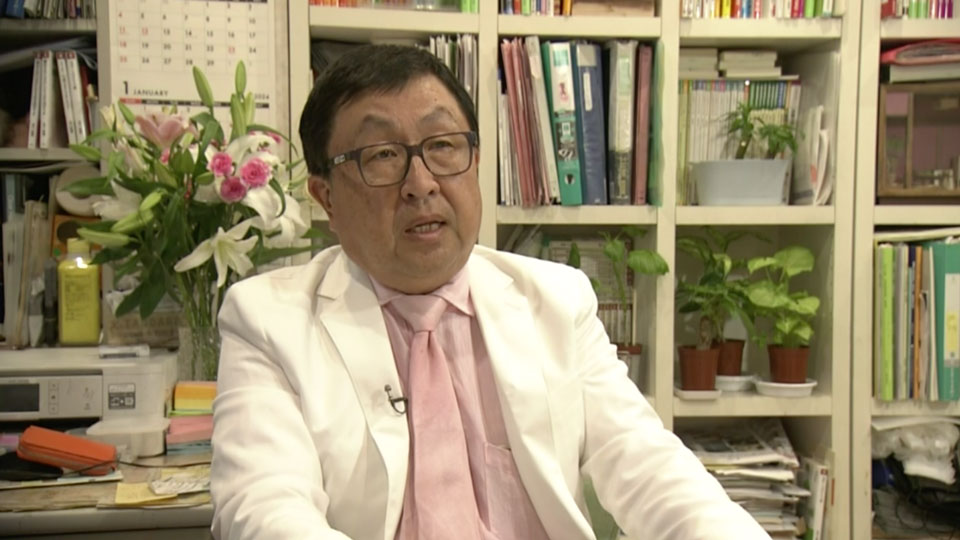
Checklist
According to the National Center of Neurology and Psychiatry, anxiety disorders are excessive fears of impending events or worries about the future that affect behavior and social life for up to six months in adults and four weeks in children. Refers to the state.
Physical symptoms include palpitations, difficulty breathing, shaking, and sweating.
This disorder includes:
social anxiety disorder
Intense fear of being the center of attention and being judged in public, especially when speaking
panic disorder
Sudden physical symptoms such as palpitations
generalized anxiety disorder
worry excessively about an endless variety of problems
Some symptoms overlap with depression, such as sleep disturbances, restlessness, and difficulty concentrating.
The Japan Anxiety Disorders Society has created a checklist with the cooperation of experts and recommends its use in clinical settings. It contains seven questions and is used as an indicator.
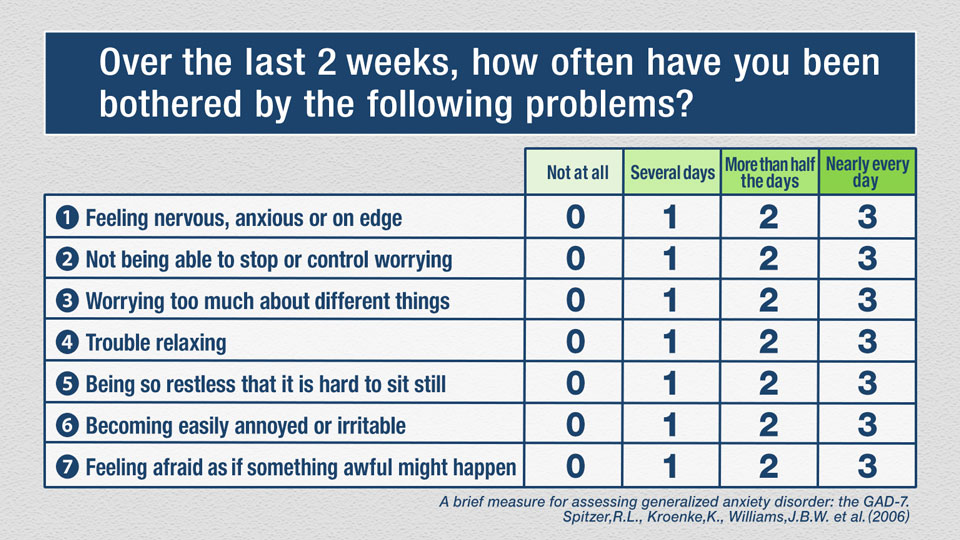
anxiety level
0-4 points Minor
5-9 points only
10-14 points moderate
15-21 points Severe
People with a total score of 10 or more are suspected of having an anxiety disorder. Diagnosis can only be carried out at a specialized medical institution.
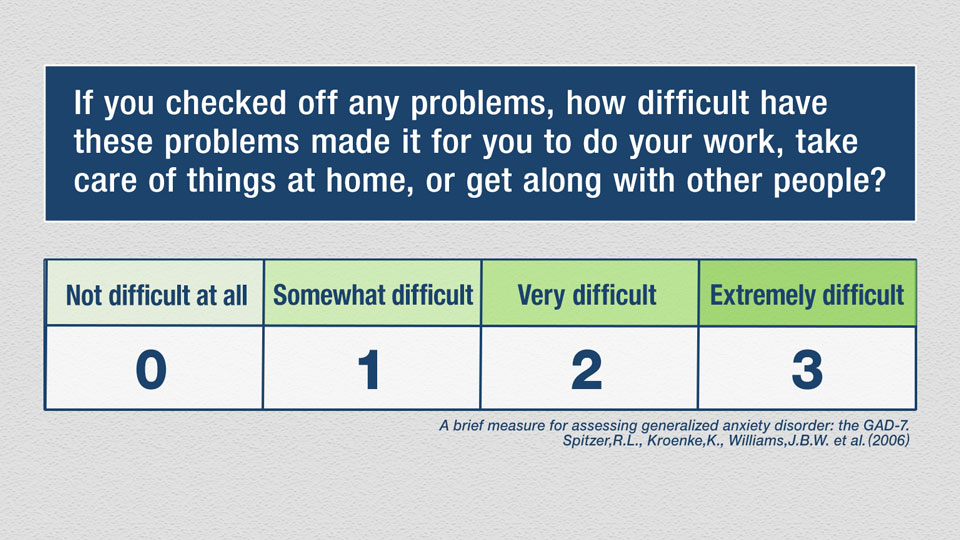
Eiji Shimizu, an anxiety disorder expert and professor at Chiba University Graduate School of Medicine, said the checklist could help people monitor their mental health and seek help if needed. There is.
“Society needs to build a system that promotes mental health,” points out Shimizu, who also serves as president of the Japan Anxiety Disorders Association.
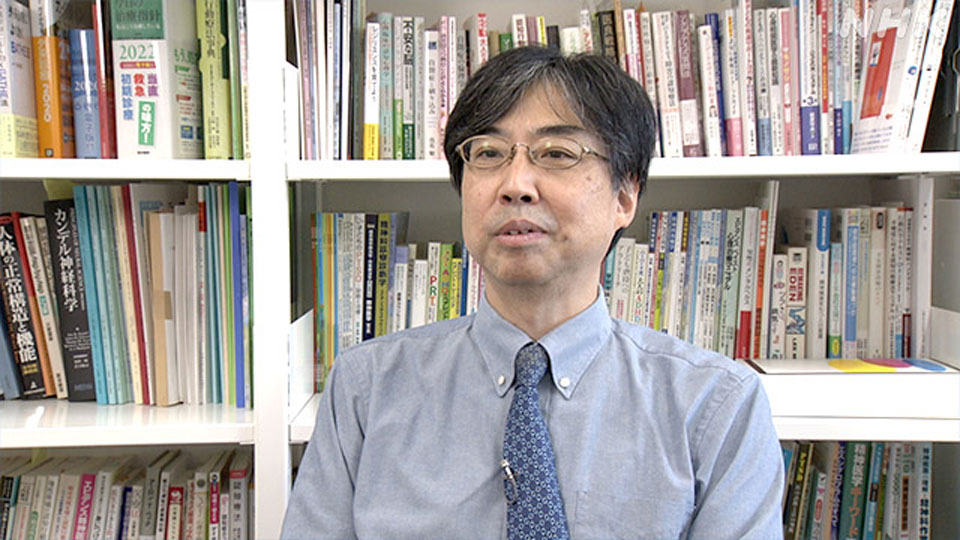
A call for more resources
According to a 2020 national survey, the number of patients visiting medical institutions for anxiety disorders was increasing. The latest data shows a figure of approximately 30,000 people, approximately 1.4 times the number in 2014.
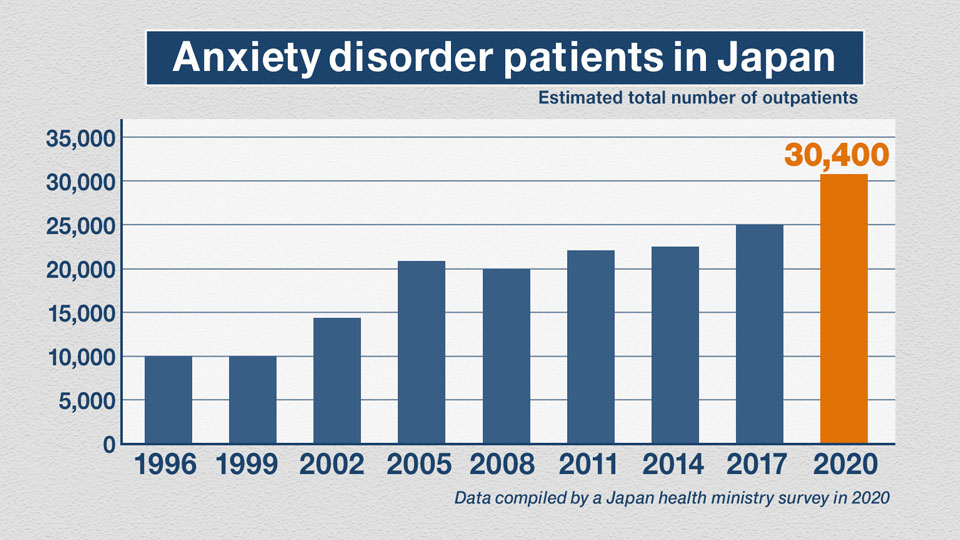
Shimizu said anxiety disorders are significantly underreported because many patients don’t seek help, adding, “Potentially 70 percent never see a doctor. So anxiety is more common than depression.” There may be more patients with disabilities.”
“A range of illnesses can snowball from simple anxiety to pathological anxiety, and even insomnia and depression. , appropriate mental health care must be provided.”
uncertain future
According to a 2022 World Health Organization report, one in eight people worldwide has a mental health problem, the most common of which is anxiety.
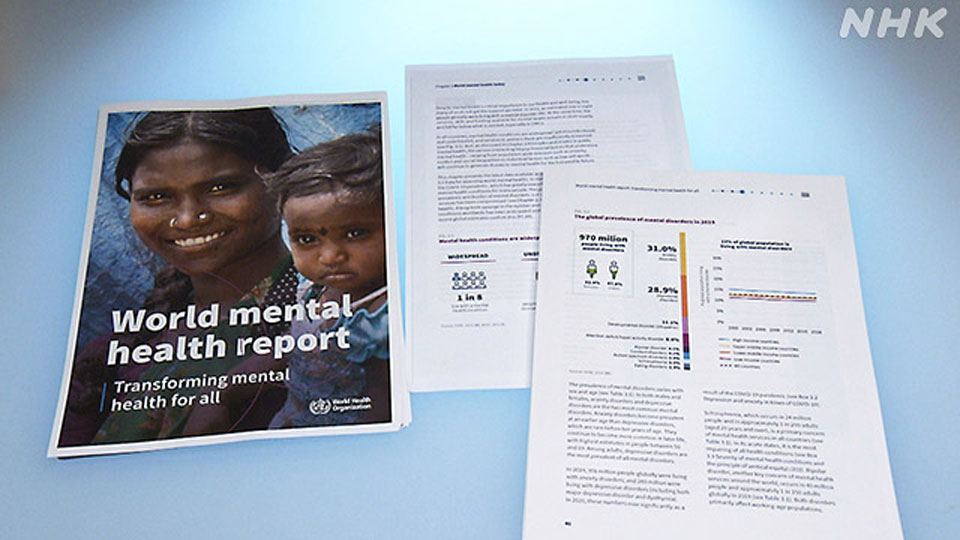
Research into young people and the issues they worry about is underway. The 2021 UK study took climate change into account. Of the 10,000 people under the age of 25 in 10 countries, about 60% said they felt severe anxiety, and about 45% thought it affected their daily lives.
Caroline Hickman, a lecturer at the University of Bath who carried out the study, said uncertainty about the future was a common fear.
She added that young people often feel that they are not heard when speaking about their concerns about climate change. Also, there is no concrete solution to the problem.
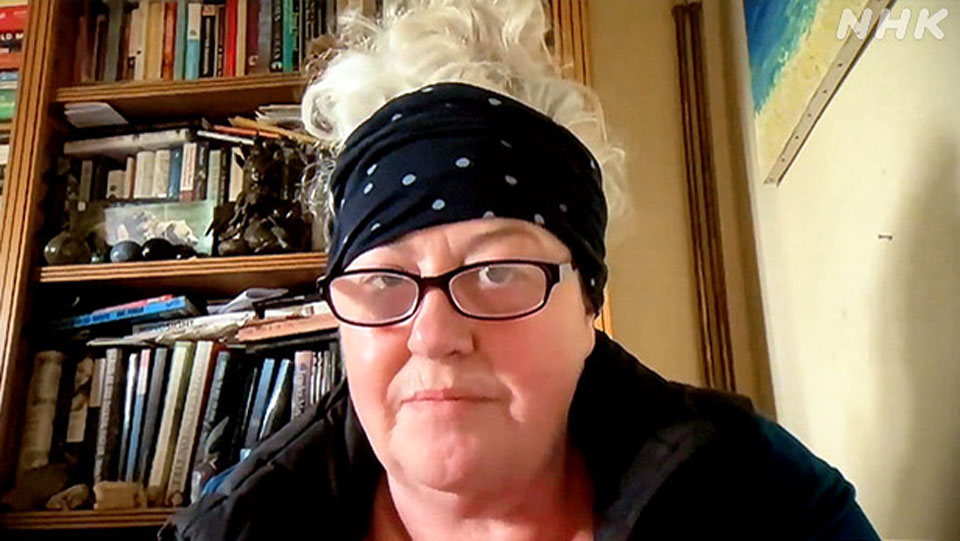
“Young people are influenced by what’s happening in the world on TV and in the newspapers. The world is full of threats that worry and upset young people. They worry about what’s going to happen.”
Pilot program in Tokyo
In Adachi Ward, Tokyo, efforts are underway to alleviate young people’s concerns and provide early support. SODA — an abbreviation for Support with One-Stop Care for Adolescents and Adults — is a free consultation service for people ages 15 to 25.
The program was originally funded by a research grant from Japan’s Ministry of Health and Welfare and is an ongoing project. Specialist staff such as psychiatrists and mental health social workers will introduce you to medical institutions and organizations.
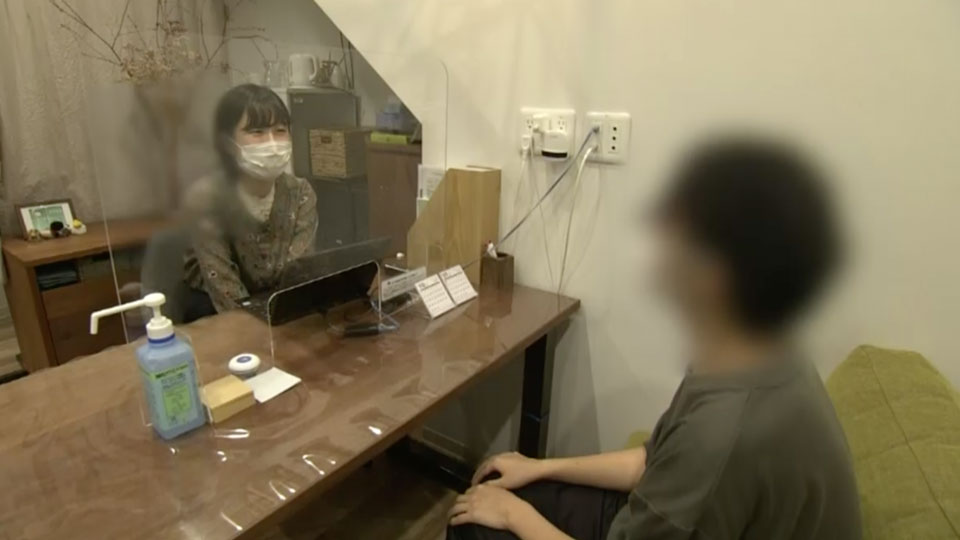
Takashi Uchino, a psychiatrist and director of the counseling center, says allowing people to talk freely about their worries can help prevent anxiety from worsening.
“You can receive a certain level of specialized consultation before you go to the hospital. We can support you from an early stage.”
